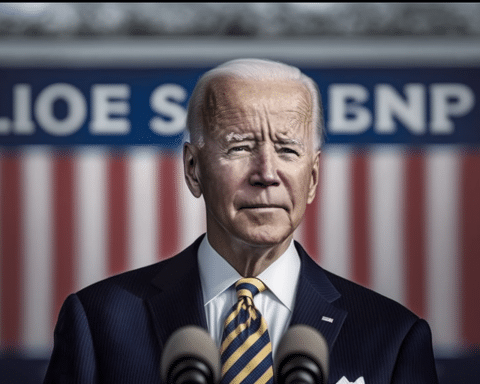Lawmakers in the United States are considering a bill that could see the popular video-sharing app, TikTok, banned or prohibited from use within the country. The move comes after concerns have been raised over data privacy, with the app’s Chinese-based parent company, ByteDance, coming under scrutiny.
Senators Mark Warner and John Thune are introducing a bill that outlines banning or prohibiting foreign technology, including TikTok. The parent company of TikTok, ByteDance, is privately held in China, and data privacy concerns have been circulating regarding the app, which is a popular short-form video platform used by over 100 million Americans.
Senate Intelligence Committee Chair Mark Warner, D-Va., said he is introducing a broad bipartisan bill this week that will outline an approach to banning or prohibiting foreign technology, like the popular video-sharing app TikTok. Warner is concerned about the type of content that Americans are seeing on TikTok and fears it can be a propaganda tool.
U.S. House Foreign Affairs Committee Takes Action
On Wednesday, the House Foreign Affairs Committee approved a bill that would authorize President Joe Biden to ban TikTok. The legislation passed with a 24-16 vote along party lines, receiving unanimous support from GOP members and no votes from Democrats.
Despite the recent legislation that went before the committee, lawmakers still have a significant amount of work to do before a concrete ban on TikTok can be implemented.
If the bill manages to pass through the Republican-controlled House, it will still face opposition in the Democratic-majority Senate, which may make it challenging to pass some version of the bill due to concerns that have already been expressed by some Democrats. Should it pass the Senate, President Biden will still need to make the decision of whether to veto the bill or sign it into law.
The Struggles Faced by TikTok with U.S. Authorities
TikTok has been in the spotlight for some time now, facing challenges from U.S. officials. Former President Donald Trump expressed his intention to ban the app by executive action in 2020. Congress also banned TikTok from government devices as part of a bipartisan spending bill in December. Moreover, several governors have removed the app from state computer networks, including public universities. Recently, Senator Josh Hawley of Missouri has also called for a complete nationwide ban on the platform.
U.S. officials have been scrutinizing TikTok over data privacy concerns, with allegations that the app was sharing user data with the Chinese government. The company has repeatedly denied these allegations, but it has faced backlash from U.S. lawmakers.
What Happens Next?
It remains to be seen what will happen with the proposed bill to ban TikTok. While it has already passed the Republican-controlled House Foreign Affairs Committee, it will need to go through the Democratic-majority Senate, which could face opposition from some Democrats. If the bill passes the Senate, Biden will need to decide whether to veto it or sign it into law.
It’s unclear what a ban on TikTok would mean for the millions of Americans who use the app regularly. TikTok has become a cultural phenomenon, with users creating and sharing short-form videos on a wide range of topics. However, concerns over data privacy and national security have led some lawmakers to push for a ban.
In the meantime, TikTok continues to operate in the United States. The app has implemented new security measures to address concerns over data privacy, including setting up a Transparency and Accountability Center to allow outside experts to review its practices. However, it remains to be seen whether these measures will be enough to satisfy U.S. lawmakers and prevent a ban.




